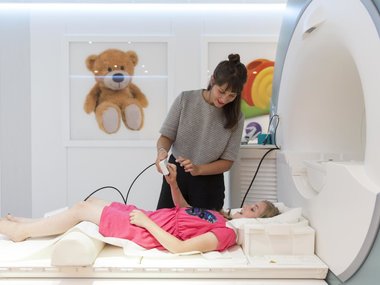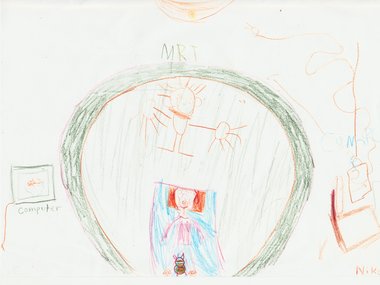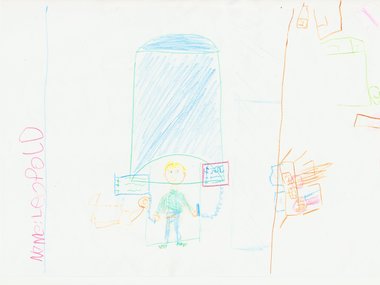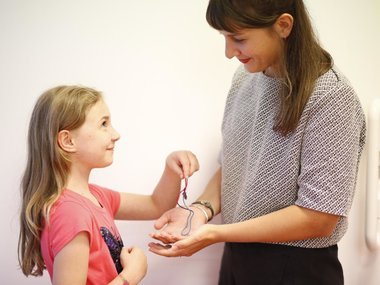HippoKID Study
A study of the Minerva Group led by Yee Lee Shing

© Philipp Neundorf
This study longitudinally followed children born close to the cut-off date for school entry who subsequently did or did not enter school that year. Schoolchildren displayed larger behavioral improvements in cognitive control than kindergarteners, and also showed increased activation in posterior parietal cortex, a region important for sustained attention, while performing an inhibitory control task. In contrast, longitudinally observed improvements in episodic memory did not differ reliably between the two groups, suggesting that formal school entry primarily promotes brain mechanisms that help children to focus on cognitively demanding tasks.
Children experience the MRI scanner
Information video about the HippoKID experience
Here you can get an impression of our HippoKID Lab and see a young HippoKID participant on his visit.
Duration: 4:26 min
https://www.youtube.com/watch?v=6m2L6mPZg4s
Duration: 4:26 min
Publications
, , , , & (2021). Neural correlates of successful memory encoding in kindergarten and early elementary school children: Longitudinal trends and effects of schooling. Cerebral Cortex, 31(8), 3764–3779. https://doi.org/10.1093/cercor/bhab046
, , , , , , & (2020). I know that I know nothing: Cortical thickness and functional connectivity underlying meta-ignorance ability in pre-schoolers. Developmental Cognitive Neuroscience, 41, Article 100738. https://doi.org/10.1016/j.dcn.2019.100738
, , , & (2018). Cognitive control moderates parenting stress effects on children's diurnal cortisol. PLoS ONE, 13(1), Article e0191215. https://doi.org/10.1371/journal.pone.0191215
, , & (2017). Does one year of schooling improve children's cognitive control and alter associated brain activation? Psychological Science, 28(7), 967–978. https://doi.org/10.1177/0956797617699838







